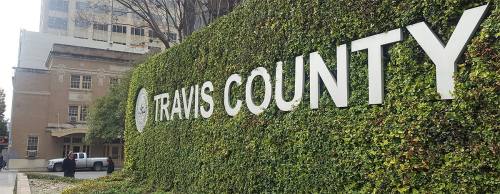Commissioners debated Tuesday over whether to hold an election to create and fund a conservation district that would regulate, protect and conserve the groundwater supply derived from the Trinity Aquifer, one of nine major aquifers in the state.
In January 2017, the Texas Commission on Environmental Quality, or TCEQ, recommended to the 85th Legislature that a regulatory entity be created to protect an area over the Trinity Aquifer which is not covered by any groundwater conservation district. State Rep. Paul Workman, R-Austin, filed House Bill 922 on Jan. 11, 2017 to establish a groundwater conservation district in the area, his third such attempt in three legislative sessions.
County Judge Sarah Eckhardt said the Legislature could not drum up a reason to fund the project and the unfunded mandate has now been passed to the county.
“We have struggled for many years to get some regulatory structure over this remaining hole over the aquifer in western Travis County,” Eckhardt said. “This is an example of an unfunded mandate and the cost of direct democracy rather than representative democracy.”
The Southwestern Travis County Groundwater Conservation District would encompass all of the county south of the Colorado River and west of the Barton Springs/Edwards Aquifer Conservation District’s border, which runs southwest from the Colorado River along Westlake Drive and Camp Craft Road in West Lake Hills. The district would cover roughly 200 square miles, making it smaller than many in the state.
The group behind the district requested the county pay $500,000 to hold a May election during which voters would choose whether to create the district. They also requested $5,000 to help get the district's efforts underway.
Commissioners expressed concern over funding and holding an election so soon. They asked county election officials to explore the option of holding the election at a later date in order to be as fiscally conservative as possible.
“To put a [May] election together in March is cost prohibitive,” said Commissioner Jeff Travillion. “Can we demonstrate our intent to comply with this [request at a cost] close to $100,000 rather than $500,000? [The legislature and TCEQ] could’ve done this, but they didn’t do it. We need to do this in a timely manner at a rate which will cost us 80 percent less [that what is currently being proposed].”
Following an executive session, commissioners postponed the vote and are expected to take up the item again during their Feb. 27 meeting.




